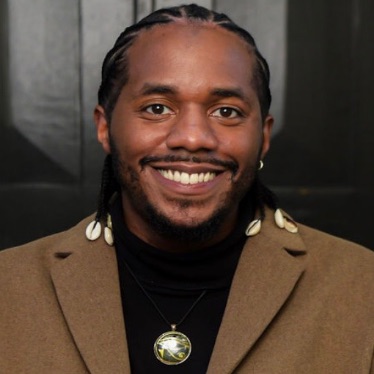What is body image therapy and who is it for?
Body image therapy is a type of counseling that focuses on how you perceive, think, and feel about your physical appearance. It aims to help you build a healthier, more compassionate relationship with your body—regardless of your weight, shape, size, or health status.
This form of therapy is for anyone who:
- Feels uncomfortable or ashamed of their body
- Struggles with constant comparison or self-judgment
- Avoids mirrors, photos, or certain clothes
- Bases self-worth largely on appearance
- Has a history of weight cycling, dieting, or body shaming
- Lives with body dysmorphia, disordered eating, or an eating disorder
- Feels disconnected or distressed after physical changes (e.g., illness, aging, pregnancy)
You don’t have to be diagnosed with anything to benefit from body image counseling. If your thoughts about your body are taking up more mental space than you’d like—or causing distress—it’s worth seeking help.
How do I know if I have a negative body image?
Negative body image doesn’t always mean you actively “hate” your body—it can also show up as subtle, persistent dissatisfaction, self-consciousness, or emotional discomfort with how you look. Many people struggle silently, unsure whether their concerns are serious enough to seek help. But if your thoughts about your appearance are interfering with your well-being, daily functioning, or confidence, you could benefit from therapy for body image issues.
Common Signs of Negative Body Image:
You may have a negative body image if you often experience:
- Obsessive self-criticism: You frequently focus on perceived “flaws,” even ones others don’t notice.
- Avoidance behaviors: You avoid mirrors, photographs, wearing certain clothes, or participating in activities (like swimming or intimacy) due to discomfort with your body.
- Preoccupation with weight or shape: Your mood or self-worth is tied to your weight, a number on the scale, or how your clothes fit.
- Comparison thinking: You compare your appearance to others constantly—especially online—and often feel inferior.
- Body checking or body hiding: You either check your reflection multiple times a day or avoid looking at yourself entirely.
- Guilt or shame after eating or skipping exercise: You view food or movement as a moral judgment on your body’s appearance.
- Believing your body holds you back: You think your body is a barrier to relationships, happiness, career goals, or self-esteem.
- Disconnection from your body: You feel numb, disconnected, or resentful toward your physical self.
These patterns often form over time, influenced by social conditioning, media exposure, trauma, family dynamics, or identity struggles. For some people, these thoughts may become so normal they barely notice how pervasive or harmful they’ve become.
A Word on Body Image and Mental Health
Negative body image is linked to a range of mental health issues, including:
- Anxiety and depression
- Disordered eating behaviors
- Low self-esteem and perfectionism
- Social withdrawal
- Increased risk of self-harm or suicidal ideation
Even if these symptoms are mild, they can erode your quality of life over time. Early support through body image counseling can help you recognize and shift harmful patterns before they become more entrenched.
You don’t need to be in crisis to seek help. If your body image makes you feel “not good enough,” “unlovable,” or “not ready to live your life fully,” that’s reason enough to speak with a body image therapist. Therapy offers a chance to build self-respect, self-trust, and self-compassion—regardless of your body’s shape, size, or story.
Can therapy help with body dissatisfaction even if I don’t have an eating disorder?
Absolutely. Many people experience body image issues without having a clinical eating disorder. You might not restrict food or purge, but still:
- Avoid your own body in the mirror
- Feel like your worth depends on your appearance
- Experience anxiety about clothes, weight, or aging
- Feel unworthy of love, success, or happiness unless your body changes
Therapy for body image issues can help you shift from harsh self-judgment to curiosity, neutrality, and eventually self-compassion. You don’t have to be in crisis to deserve support. If your body image is affecting your mental health, relationships, or sense of self, therapy can help.
What types of therapy are used to improve body image?
Several therapeutic approaches have been proven effective in improving body image and self-acceptance:
Cognitive Behavioral Therapy (CBT)
Helps identify and challenge distorted thoughts about your body. CBT supports behavior change, mood regulation, and reduced negative self-talk.
Dialectical Behavior Therapy (DBT)
Teaches mindfulness and emotion regulation. DBT is especially helpful if body image issues are tied to intense emotions, self-harm, or identity struggles.
Acceptance and Commitment Therapy (ACT)
Focuses on accepting uncomfortable thoughts and feelings without letting them control your behavior. ACT helps you build a life centered on your values—not appearance.
Body Image Rescripting
A technique often used with body dysmorphia therapists, where you mentally revisit distressing body-related memories and reshape how you interpret them.
Somatic Therapy
Incorporates body-based approaches (like breathwork or movement) to rebuild trust and safety in the body—especially useful for people with trauma histories or body disconnection.
Your body image counselor may also integrate narrative therapy, mindfulness, or compassion-focused therapy based on your unique needs and history.
Is poor body image always related to weight or appearance?
Not always. While weight and shape are common triggers, poor body image can also stem from:
- Skin conditions or acne
- Scarring or disfigurement
- Physical disabilities
- Gender dysphoria
- Chronic illness or fatigue
- Height, posture, or muscularity
- Cultural or racialized beauty standards
- Hair loss, facial features, or body proportions
Body image issues can arise from how you feel in your body—not just how it looks. Therapy can help you explore internalized beliefs, social conditioning, and your personal experience of embodiment, regardless of appearance.
Can social media or cultural pressure contribute to body image issues?
Yes—powerfully so. We live in a culture that promotes unrealistic, edited, and often unattainable body ideals. Social media amplifies this through:
- Constant comparison with influencers, celebrities, or peers
- Idealized images that are filtered, retouched, or surgically enhanced
- Algorithmic reinforcement of beauty-focused content
- Weight-loss ads disguised as “wellness” or “health” advice
- Toxic “fitspiration,” “thinspiration,” or before-and-after culture
Research shows that the more time people spend on appearance-focused content, the more likely they are to experience body dissatisfaction and eating concerns.
Body image therapy helps you recognize and challenge these influences. It supports media literacy, self-advocacy, and the development of a more grounded, empowered sense of self.
How does body image therapy support people with eating disorders or disordered eating?
Poor body image is often a core component of eating disorders like anorexia, bulimia, binge eating disorder, or orthorexia. In fact, negative body image is one of the strongest predictors of eating pathology.
Therapy can help by:
- Separating body image concerns from food and weight control behaviors
- Addressing the emotional or traumatic roots of disordered eating
- Rebuilding trust in the body’s cues (hunger, fullness, fatigue, emotion)
- Reducing fear-based or compensatory behaviors
- Promoting body neutrality or body respect, rather than perfection
Working with a body image therapist in coordination with a dietitian or eating disorder treatment team can offer comprehensive care and long-term recovery.
Can therapy help me accept my body after physical changes (e.g., pregnancy, illness, surgery)?
Yes. Life changes—whether joyful or painful—can deeply affect how we feel about our bodies. Common examples include:
- Pregnancy and postpartum: Changes in shape, stretch marks, hormonal shifts, breastfeeding
- Illness: Hair loss, weight fluctuations, scars, fatigue, medical devices
- Surgery: Scarring, disfigurement, breast removal or reconstruction
- Aging: Wrinkles, weight redistribution, reduced muscle tone
- Gender transition: Body incongruence or post-surgical adaptation
Body image therapy offers support for grieving what has changed while also creating space for acceptance and reconnection. Therapy helps you separate self-worth from physical form, and explore what it means to live in your body now.
How long does it take to see progress in therapy for body image?
Everyone’s journey is different. Some people begin to notice shifts within a few months, while others engage in body image therapy for a year or more.
Factors that affect progress include:
- The depth of internalized beliefs
- Co-occurring conditions (e.g., depression, eating disorders, trauma)
- Support systems and daily environment
- Consistency in therapy
- Willingness to practice new skills and challenge thoughts outside sessions
You may start by moving from self-hate to neutrality, and eventually to self-compassion. Progress isn’t linear—but every step toward self-kindness matters. Your therapist will work with you to define what progress looks like and how to celebrate it.
Is it normal to still have bad body image days even during therapy?
Yes—this is very normal. Healing body image doesn’t mean you never have a critical thought again. It means:
- You notice the thought without spiraling
- You respond with more curiosity and compassion
- You don’t let bad body thoughts dictate your behaviors, mood, or self-worth
- You have tools to regulate and reframe those moments
Think of therapy for body image issues as emotional strength training: you’ll build mental flexibility, resilience, and self-care habits that buffer against bad days and help you recover faster when they happen.
Can teens or children benefit from body image therapy?
Absolutely. Body dissatisfaction often begins in childhood or adolescence, especially for girls and gender-diverse youth. Early intervention can:
- Prevent disordered eating and mental health issues later in life
- Promote healthy relationships with food and movement
- Build self-confidence in a world filled with comparison
- Provide tools to cope with peer pressure and media influence
- Support identity development and emotional resilience
A body image therapist trained in child or adolescent therapy can use age-appropriate techniques such as art, storytelling, play therapy, and group support to help younger clients explore how they feel about their bodies—and learn to treat them with care and respect.
You don’t have to wait for your body to change to start feeling better about yourself.
Whether you're recovering from an eating disorder, struggling with chronic dissatisfaction, or learning to live in a body that’s changed—body image therapy can help you find peace, strength, and belonging in the skin you’re in.
Seek support from a licensed body image therapist, explore body image counseling, or begin online therapy for body image issues today. You deserve to feel safe in your body—and seen for more than how it looks.













